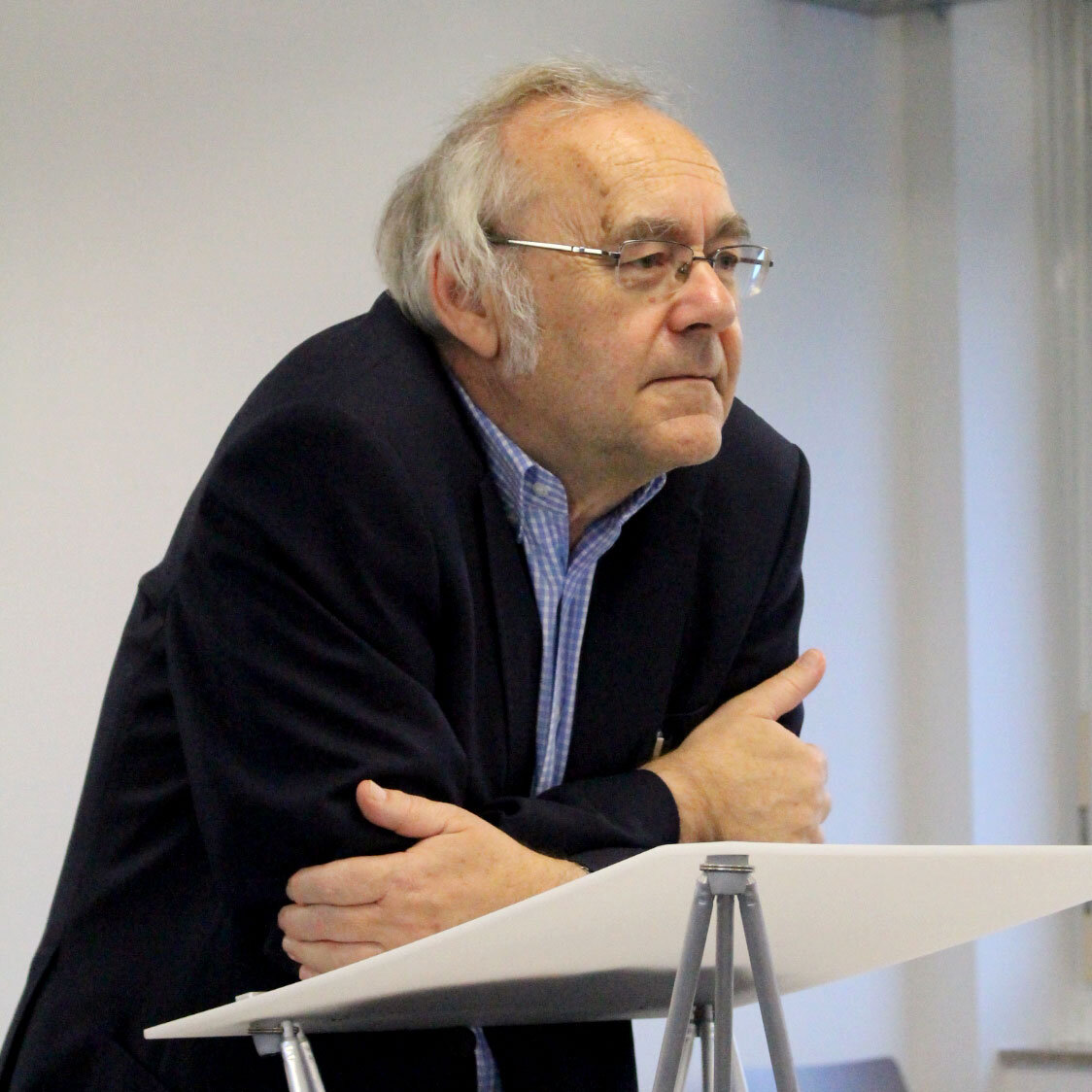The Flight from Contingency: 1


Contents:
Preface
Introduction
The Flight from Contingency
Appendix I: Talking About. A short manual for dualist argumentation.
Appendix II: Radical Constructivism... What difference does it make?
Motto
That there is no one proposition that is not debated and controverted amongst us, or that may not be, makes it very manifest that our natural judgment does not very clearly discern what it embraces; for my judgment cannot make my companions approve of what it approves; which is a sign that I seized it by some other means than by a natural power that is in me and in all other men.
Let us lay aside this infinite confusion of opinions, which we see even amongst the philosophers themselves, and this perpetual and universal dispute about the knowledge of things;for this is truly presupposed, that men, I mean the most knowing, the best bom, and of the best parts, are not agreed about any one thing, not that heaven is over our heads; for they that doubt of every thing, do also doubt of that; and they who deny that we are able to comprehend any thing, say that we have not comprehended that the heaven is over our heads, and these two opinions are, without comparison, the stronger in number.
Besides this infinite diversity and division, through the trouble that our judgment gives ourselves, and the incertainty that every one is sensible of in himself,‘tis easy to perceive that its seat is very unstable and insecure.How variously do we judge of things?—How often do we alter our opinions? What I hold and believe to-day I hold and believe with my whole belief;all my instruments and engines seize and take hold of this opinion, and become responsible to me for it, at least as much as in them lies;I could not embrace nor conserve any truth with greater confidence and assurance than I do this; I am wholly and entirely possessed with it;but has it not befallen me, not only once, but a hundred, a thousand times, every day, to have embraced some other thing with all the same instruments, and in the same condition, which I have since judged to be false?A man must at least become wise at his own expense; if I have often found myself betrayed under this colour; if my touch proves commonly false, and my balance unequal and unjust, what assurance can I now have more than at other times? Is it not stupidity and madness to suffer myself to be so often deceived by my guide? Nevertheless, let fortune remove and shift us five hundred times from place to place, let her do nothing but incessantly empty and fill into our belief, as into a vessel, other and other opinions; yet still the present and the last is the certain and infallible one; for this we must abandon goods, honour, life, health, and all.
(Montaigne, THE APOLOGY FOR RAIMOND SEBOND)
Preface
This book is concerned with the common ground within philosophy and not with the differences between individual positions or models of thought. Dualist presuppositions form the shared basis of philosophical discourse. These presuppositions enable us to distinguish domains of coincidence and contingency, of thought and speech, from a level beyond the arbitrariness of human discourse.
In philosophy this level is situated below the language-level as world, as object, as that what-we-talk-about – and in theology above it. The dualist presuppositions steer the direction of thought to the object-level and make agreement/accordance with this level the goal. The argumentation technique employed by dualist philosophy can generate this agreement for any arbitrary opinion. I try to (re)construct the distinctions between these levels as argumentative positings that become presuppositions of discourse. As a result, they lose their status as presuppositions and I can decide for or against them.
Refraining from making these presuppositions is merely to refrain from justifying our opinions in a beyond of discourse that is nothing but our own world once again. Our conversations, our agreements, and our conflicts do not become any more arbitrary than they already were.</span>An error can be defined only as the difference from the opinion that established the error, regardless of whether this establishing is legitimized from a standpoint beyond discourse or not. (This is why the reader is responsible for errors in this book and not the author.)
Appendix 1 is a brief attempt to initiate a visitor from a world without philosophy into the main features of dualist argumentation.
Appendix 2 is a demarcation from radical constructivism. Constructivism is one answer to the question of the relation between language and reality, realism is another.
What interests me, by contrast, is how this relationship is constructed as a dichotomous presupposition that constitutes what I call the paradogmaof dualistic philosophy. This may explain why I do not participate in the discussion internal to dualism (in which my sympathies are more on the side of constructivism) and also why I am called a constructivist by those who do not see or make a distinction between constructivism and nondualism.
An Introduction
1. Rhetoric wants to convince an audience of any arbitrary opinions. Philosophy aims at most to convince its audience of the truth. Philosophy may not be able to dispense with rhetoric but philosophy is more than rhetoric, however persuasive its arguments may be.
This is how philosophy has understood itself since it pushed rhetoric to the margins of intellectual interest over 2000 years ago. Beyond all differences of opinion, the goal and motivation of our cognitive efforts is the search for truth. And even philosophers who see little or no prospect of success for the search for truth and knowledge retain truth as a regulative ideal of discourse.
To renounce the concept of truth altogether without at least offering substitutes such as appropriateness, usefulness, or viability would be tantamount to the self-abnegation of philosophy in the minds of most philosophers. Anyone who no longer orients his thought toward truth without at least taking his orientation from a substitute concept becomes the epitome of the non-philosopher. Already the accusation of relativism is enough to banish the individual thus criticized to the fringes of philosophy: Arbitrariness is the archenemy of philosophy.
2. Against this, I attempt to reconstruct philosophy as an argumentation technique. This argumentation technique can justify any arbitrary opinions as true, correct, or adequate, as justified or rational, insofar as they are advocated; and it can eliminate any opinions whatsoever from our discourse as false or erroneous, as unjustified or unreasonable, or at least discredit them. In discursive conflicts this technique of argumentation helps to immunize one’s own views and to criticize the opposing views. This is a central thesis of the book.
3. The history of philosophy is also the history of the succession and coexistence of theories and systems that are supposed to solve the problems of philosophy. The most diverse positions have evolved over the course of the history of philosophy -- realism, idealism, constructivism, empiricism, rationalism, and pragmatism – with these major currents becoming differentiated in turn into numerous variants. One can defend naïve or critical realism, hypothetical, objective, modal, intentional, internal, external, or constructive realism and the possibilities for developing further variants are open and are also exploited. Aside from an “avalanche of realisms”[1] in the first half of the twentieth century, the most diverse variants of pragmatism have evolved (Arthur O. Lovejoy spoke as early as 1908 of “The Thirteen Pragmatisms”) and at present the number of constructivisms is undergoing a rapid increase, more recently to include a “realism-compatible form of constructivism.”[2]
4. There is little if any difference between the positions in contemporary philosophy and those defended over the course of the history of philosophy. There are still Platonists and Aristotelians among us and (neo-)Scholastics, realists, and idealists continue to teach, though nowadays idealists tend to be called constructivists and realists used to be called dogmatists. To be a Hegelian or a Kantian is not a sign of backwardness – being a Neokantian more likely so – and neopragmatism and pragmatism have a lot in common.
The cross section of contemporary thought resembles in many respects longitudinal section through the history of philosophy. As philosophers, we are invariably lateral entrants into the history of philosophy, which contemporary philosophy extends rather than supersedes. The first philosophical “discoveries” that we make have often been made already by other philosophers before us.
Why does a philosopher advocate precisely the philosophy he does and not another one? A philosopher will respond to this question by citing the merits of his philosophy and the errors, deficiencies, and demerits of other philosophies. His response is always a retrospective one: We did not decide as realists, pragmatists, or constructivists which philosophy to study where and with whom. Only in retrospect, long after the decision in favor of the philosophy we defend has been made, do we thank our academic teachers for their influence on our intellectual development. A different university or different teachers might have been sufficient to turn us into transcendental philosophers instead of analytic philosophers, or the converse. Three philosophical schools flourish alongside each other at a major European university, a phenomenological school, an analytical school, and one oriented to Lacan. The direction students latch on to is conditioned in part by the language they studied at high school (English?– then more likely analytic philosophy; French?– more likely Lacanian thought; German?–in the past Marxism, nowadays phenomenology), by where and from whom they got information, which lectures they happened to attend first, whether they already know other philosophy students, and so on.
The circumstances that lead a philosopher to defend this philosophy rather than that one are contingent. Philosophers should actually count themselves lucky that they defend the “right” philosophy and not the “wrong” one.
6. The alignment of individual philosophers with the various currents, directions, and schools is controversial. At least by their critics, philosophers are often assigned to a different direction than the one to which they feel beholden. Someone who regards herself as a critical realist may be classified by others as a constructivist; on some interpretations, even anti-realists are in reality realists. Most of the so-called relativists expressly repudiate this label and even regard themselves as critics of relativism. Critical rationalists and realists continue to be described as positivists by their adversaries. For Friedrich Hayek, positivists as well as rationalists are constructivists. And someone who is a constructivist in one person’s eyes is a deconstructionist in another’s.
Humberto Maturana denies that he is a constructivist, even though many regard him as one of the main representatives of constructivism. Who is a postmodernist? Who was a “bourgeois” philosopher and who a Marxist? Is Hilary Putnam an analytic philosopher, Donald Davidson a pragmatist? And the present author has been classified as a constructivist, a deconstructionist, as a radical lingualist, as an idealist, a rationalist, a relativist, and so forth. Just how mistaken self-assessments can be and become is shown by a quotation from Ernest Gellner. He writes: “Quine seems to classify himself readily as a relativist even though in reality he is not one; Kuhn rejects this designation even though in reality he cannot logically avoid it.”[3]
7. Not only is it contentious whether a philosopher advocates the theory to which he feels he belongs or the one attributed to him. It is often questionable whether he is a philosopher at all and not, for example, a poet, a thinker, an anti-scientist, a crank, or a charlatan (and according to Leszek Kołakowski, not just for others but also for himself: “A modern philosopher who has never once suspected himself of being a charlatan must be such a shallow mind that his work is probably not worth reading.”[4])
Is Derrida a philosopher? Many “established” philosophers, especially those who teach at the “leading departments” of university philosophy, were not of this opinion until recently at least.
Is Descartes a philosopher? Not even that is certain.[5]Are Ernst von Glasersfeld and Heinz von Foerster philosophers or psychologists, cyberneticists, or cognitive scientists, or simply thinkers? What about Kierkegaard and Nietzsche? Would they get an appointment at an institute of philosophy?
A distinguished professor expressed the view at a conference: “A lot of people think they are philosophers, but in factthey are not.” In Mario Bunge’s view, phenomenology, existentialism, and constructivism are forms of anti-science and should be banished from the philosophical canon. [6]Another philosopher defends the view that all non-realist philosophy is sophistry and for that reason alone is actually non-philosophy.
“Leading” philosophers took a public stance against the conferral of an honorary doctorate in philosophy on Derrida. Richard Rorty was regarded as at best a destroyer of philosophy and students at Princeton were warned against doing their doctorate with him on the grounds that this could harm their careers. At the World Congress of Philosophy in Boston in 1998, by contrast, no other living philosopher was cited nearly as often in the abstracts. Nevertheless, he continued to be regarded by many established academic philosophers as a “non-philosopher” who had no place at conferences dealing with “serious philosophy."
A popular means of making it difficult for troublesome young philosophers to acquire a foothold in academe has always been the accusation that their work does not belong to philosophy (any more). Which modes of thought belong to philosophy, to the philosophical canon, and which do not? These determinations are always made from the standpoint of the one making the judgment.
8. A conflict with philosophy can have the form of a conflict with individual positions that claim to be philosophy. Here the question arises: In what, and to what extent, do the individual theories and systems, their different versions and subversions, differ? Such an approach can lead us to pledge our allegiance to an existing position, perhaps to modify or improve it, or it can lead us to develop a new position.
Someone who has found her place in the philosophical spectrum will make this place the center of thought and the vantage point for judging the remaining positions - in terms of their distance, their difference from the position adopted in each case as one’s own.
9.Instead of inquiring into the differences between the various philosophical positions, I would like to inquire into their commonalities –specifically those respects in which the various philosophical positions do not differ.
What is common to all positions, even the most antagonistic? What connects a naïve realist with Richard Rorty? What still connects Paul Feyerabend with the critical rationalists? What could Derrida have in common with his critics from the “leading departments of philosophy”?
Footnotes
[1] Charles W. Morris, Symbolism and Reality: A Study in the Nature of Mind(Amsterdam and Philadelphia: J. Benjamins, 1993), p. 000.
[2] See Wilhelm Lütterfelds,“Für eine Realismus-verträgliche Variante des Konstruktivismus”, in Ethik und Sozialwissenschaften9/4 (1998): 547 ff.
[3] Ernest Gellner, Entry “Relativismus (1)”, in Helmut Seiffert and Gerard Radnitzky (eds), Handlexikon der Wissenschaftstheorie(Munich: dtv, 1992), p. 291. The following are some examples of how drastic the assessments of philosophical directions by their critics can be: Karl Popper accused relativism of leading to “anarchy, to unlawfulness …and to the rule of violence”(Karl Popper, “Toleration and Intellectual Responsibility,”in Popper,In Search of a Better World[London: Routledge, 1996], p. 191); Bertrand Russell branded pragmatism as the (unintentional) forerunner of faschism (Bertrand Russell, “The Ancestry of Fascism,”in In Praise of Idleness and Other Essays[London: Routledge, 2004]; by contrast, National Socialist philosophers also criticized relativistic attitudes and modes of thought severely on account of their affinity to Judaism, democracy, and liberalism (see Poliakov and Wulf (eds), Das Dritte Reich und seine Denker[Wiesbaden: Fourier, 1989]); according to Isaiah Berlin, the idealists considered (Neo)Positivism as “an aberration, as a temporaryrecession to a crude barbarism and irrationality”. (Isaiah Berlin, “J. L. Austin and the Early Beginnings of Oxford Philosophy,” in Berlin,PersonalImpressions, ed. Henry Hardy[Princeton, NJ: Princeton University Press: 2014], p. 160); and for the neopositivist David Stove, in turn, the works of the idealists are “sick men’s dreams”(David Stove, The Plato Cult and Other Philosophical Follies[Oxford: Blackwell: 1991], p. 200.).
[4] Leszek Kołakowski, Metaphysical Horror(Chicago: University of Chicago Press, 2001), p. 1.
[5] Peter Redpath, “Philosophy and the Future of Higher Education,”Contemporary PhilosophyXIX (1998): 49.
[6] See Mario Bunge, “Charlatanism in Academia,”in Paul R. Gross, Norman Levitt, and Martin W. Lewis (eds), The Flight from Science and Reason(New York: The New York Academy of Sciences, 1996), 96-117.
(The introduction is continued in the next part, “The Flight from Contingency 2)

Josef Mitterer is an Austrian philosopher.
On Interpretation 1 here
On Interpretation 2 here
The Beyond of Philosophy 1 here
The Beyond of Philosophy 2 here
The Beyond of Philosophy 3 here
The Beyond of Philosophy 4 here
The Beyond of Philosophy 5 here
The Beyond of Philosophy 6 here
The Beyond of Philosophy 7 here
The Beyond of Philosophy 8 here
The Beyond of Philosophy 9 here
The Beyond of Philosophy 10 here